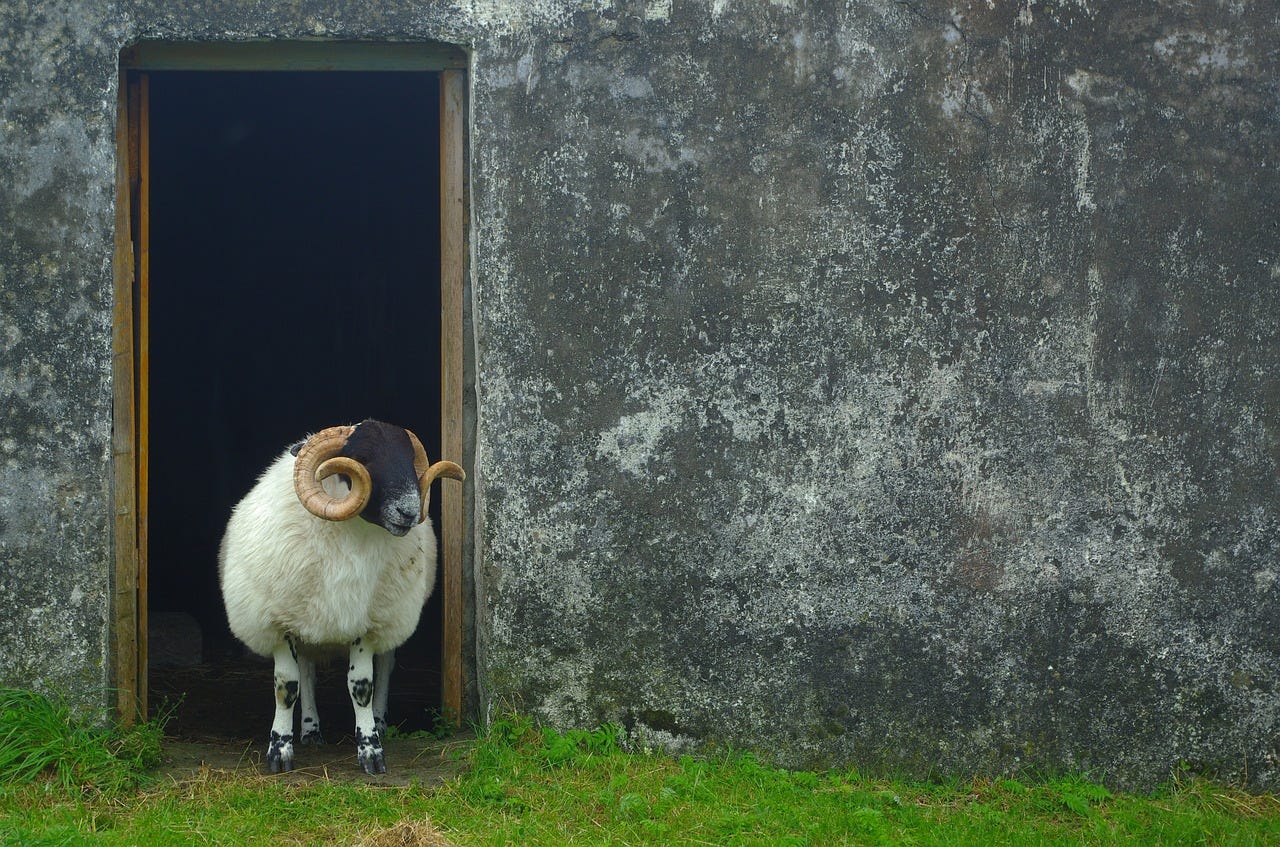Sept 22, 2019
Greetings from a new newsletter platform. That’s right, I’ve moved over to Substack. I don’t think that’ll make much of a difference to you, my dear reader, but it will mean some small improvements! Going forward you’ll be able to browse past newsletters on my homepage here and I’ll have more flexibility to embed images, video, and gifs, like this:

In the meantime, bear with me as I figure things out and don’t hesitate if you notice something looks off. And as always, feel free to get in touch with any comments and suggestions. Here's the sign up link if you feel so inclined to share with others.
This week I learned…
The majority of fossil specimens kept in museums are of male animals. This isn’t so much due to scientists' preferences, according to one theory, but because young male bison and mammoths, for instance, were more reckless and therefore more likely to wind up a fossil.
The London Underground’s tube lines can generate a lot of heat. Soon, this waste heat will be used to heat water that goes to heating homes.
Scientists have learned a bit more about honeybee mating habits. While the Queen bee tries to mate with as many males as possible to boost genetic diversity, male honeybees try to stop this so their genes can win. How? After insemination, a Queen bee starts to lose her vision, making it harder to fly around and find new mates.
Sheep living on Scotland’s remote northern islands have eaten seaweed for the past 5,500 years.

By the numbers…
6,000: Number of calories a professional chess player burns during one day of a tournament.
$10 billion: Amount climate change cost the U.S. healthcare system in 2012. A study found that global warming lead to almost 1,000 additional deaths and 20,000 more hospital visits that year.
19: Number of years the Philippines has been polio free. Until now. The country’s health secretary this week declared a new outbreak.
1,700 miles: Distance traveled by a Siberian shaman who wanted to exorcise Putin. (He was arrested before he was able to.)
I’m exploring…
… this set of charts showing “how little progress nations have made toward limiting greenhouse-gas emissions.”

What I’m reading…
Make a healthy climate a legal right that extends to future generations — Larissa Parker for The Economist.
Havana syndrome: Exposure to neurotoxin may have been cause, study suggests. — Luc Chartrand, Martin Movilla and Lisa Ellenwood for CBC News. (Context: “Some 40 Canadian and U.S. diplomats and their families mysteriously fell ill while stationed in Cuba.”)
African nations push UN to improve drought research — T.V. Padma for Nature.
Nikkei secrets unearthed on the Seymour: Digging up a forgotten Japanese outpost — Brent Richter for North Shore News in British Columbia.
ICYMI…
Thieves stole a used 18-karat gold toilet worth more than $1 million from Blenheim Palace, the birthplace of Winston Churchill, in Oxfordshire, England. A palace caretaker had previously joked no one would ever want to steal it:
“It’s not going to be the easiest thing to nick,” Lord Edward Spencer-Churchill told the Sunday Times. “Firstly it’s plumbed in, and secondly a potential thief will have no idea who last used the toilet or what they ate. So no, I don’t plan on guarding it.”


